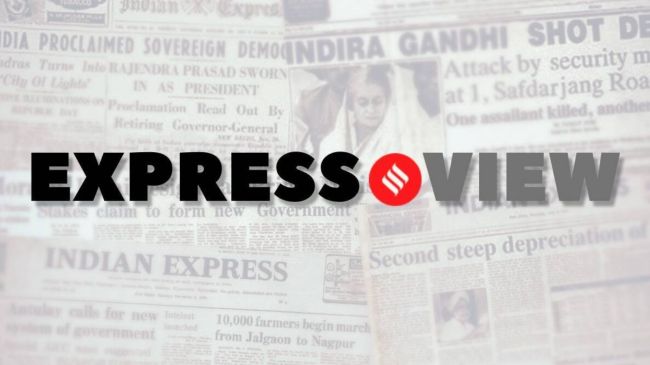Opinion Express View: Three Ratnas
Bharat Ratna to Narasimha Rao, Charan Singh and MS Swaminathan is well-deserved and politically timed. It should also be a moment of introspection
 The awarding of Bharat Ratna to the three eminent persons should also be a moment of introspection.
The awarding of Bharat Ratna to the three eminent persons should also be a moment of introspection. The timing — ahead of Lok Sabha polls — of the Narendra Modi government’s decision to confer the Bharat Ratna on Chaudhary Charan Singh and PV Narasimha Rao, both former prime ministers, may be political. While the first was a leading anti-Congress voice from the late Sixties to the mid-Eighties, the latter is someone whom the current ruling dispensation has sought to portray as having gotten a raw deal from the grand old party.
But there is no doubt that both — and the third recipient of the honour, the agricultural scientist, MS Swaminathan –- fully deserve the nation’s highest civilian award. Narasimha Rao was the father of India’s economic reforms. The success of the policy changes he unveiled in 1991 — opening up the economy to the world and private investment, both domestic and foreign — can be measured not only by the country’s GDP growing some 13-fold, from $270 billion to $3.5 trillion, since then, but also by subsequent governments not really reversing direction.
While Rao’s market-oriented liberalisation measures unleashed the “animal spirits” of entrepreneurs in India, the other two men were messiahs, no less, for the farmers of Bharat. Charan Singh’s three landmark pieces of legislation in Uttar Pradesh — dismantling the zamindari system of intermediaries between the cultivator and the state, enabling consolidation of fragmented holdings, and enforcing land ceiling — transformed the agricultural economy of northern India during the 1950s and 1960s.
It helped create a new socially and politically empowered middle peasant class in the region. Their economic fortunes rose with the Green Revolution, whose key architect was Swaminathan. He was the first to recognise the potential of the new high-yielding wheat and rice varieties — less tall with strong stems that responded well to more fertiliser application and didn’t bend when their ears were heavy with well-filled grains — and growing them in India. He also strengthened the national agricultural research system (NARS) that has helped boost yields in other crops as well, including through breeding of varieties resistant to pests, diseases and abiotic stresses.
The awarding of Bharat Ratna to the three eminent persons should also be a moment of introspection. Reforms have delivered growth, but not lessened poverty as much as was hoped. Rao wouldn’t have been happy with rising inequality and continued misallocation of resources towards inefficient producer and consumer subsidies. In today’s times, he may have batted more for direct income support.
Charan Singh’s middle peasant has become a prisoner of past success and needs a new formula for boosting incomes through crop diversification, improved input use efficiency and cutting out intermediaries in the marketing of produce (similar to the oppressive zamindars of yore). The best tribute to Swaminathan would be to restore the NARS to its former glory. Farmer interest is better served by more money for research and infrastructure investments, not under-pricing of fertiliser, electricity and water.






